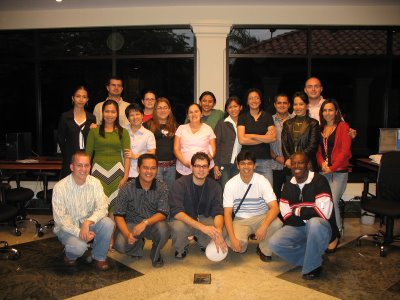Costa Rica has a significantly higher rate of inflation than the United States. Doesn't this mean that over the long term (say ten years) the cost of employees in Costa Rica will be much greater and will offset the initial savings of outsourcing? I found this question interesting to think through.
Inflation is a devaluation of your currency. The increase implied in the term actually refers to the rising cost of goods. Think of a failed state that is experiencing hyperinflation where yesterday what was someone's life savings now can't buy a loaf of bread. There are a lot of reasons for inflation (many hotly debated) but the important point here is that Costa Rica's higher inflation rate means that in general their currency (losing value at a higher rate) will trade progressively worse against the dollar, and that employees may be paid more in their own currency but for the same or less cost to the US company.
I'm not suggesting that inflation doesn't ever cause real wage pressure. For instance the rising cost of oil applies (almost) uniformly, increasing the cost of all commodities and thus prices, decreasing employees' buying power, and increasing their wage demand. It's a vicious cycle. It is precisely because it applies uniformly that it is not meaningful in comparing wages between countries.
Now the actual cost of Costa Rican employees is not decreasing, so it's interesting to go on. Many of Costa Rica's goods (besides bannanas and coffee) are imported, so if their economy doesn't grow fast enough relative to others they will lose purchasing power (a factor that can cause of inflation). This is offset by money coming in from tourism and outsourcing. These dollars shift the value of their currency closer to the dollar and maintains their buying power despite inflation. Outsourcing significantly increases wages in real terms because of rising demand. HP recently opened a big office in CR and drove the average programmer wage up, a phenomenon that is already happening in India and China in a big way.
If wages are rising, and sometimes in big jumps caused by the arrival of a major investor, what makes outsourcing worthwhile? A company doing outsourcing gets an efficiency gain (more value for the dollar, minus startup and transition costs) which hopefully allows them to grow more than they would have otherwise. If they make solid long-term investments they can establish a capital base and growth rate that allows them to absorb the wage growth, so that ten years down the road they have made a net gain. Think of a loan where you face a rising long term cost due to intrest, but you get initial capital that hopefully allows you grow and get ahead of this debt. One caveat here is that this benefit is negated if competitors are receiving exactly the same benefit, but in that case outsourcing is required in order to remain competitive.

